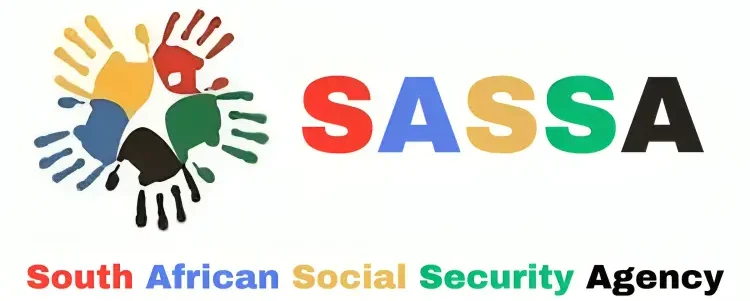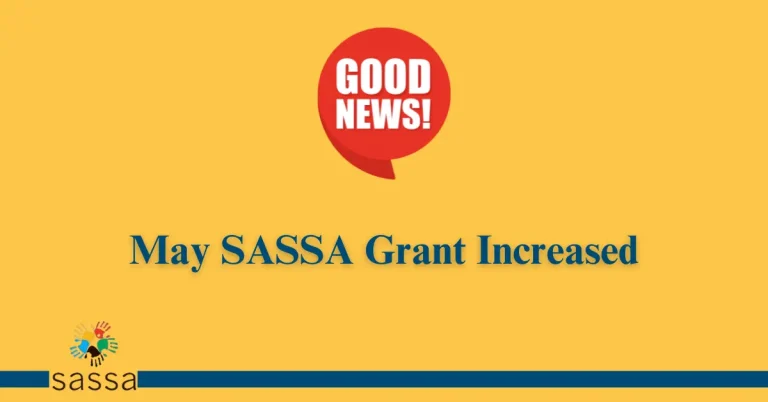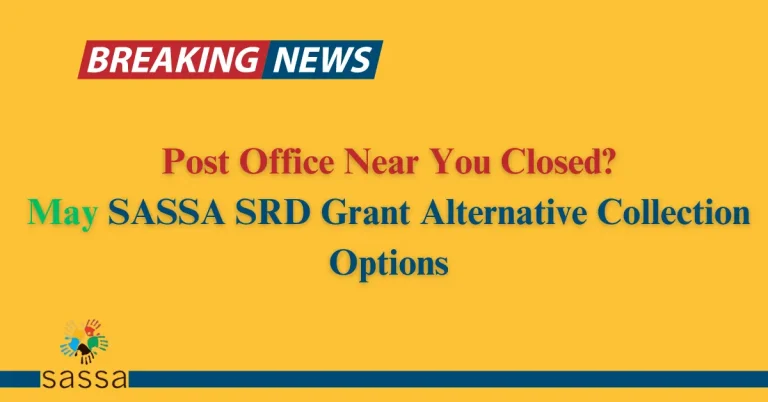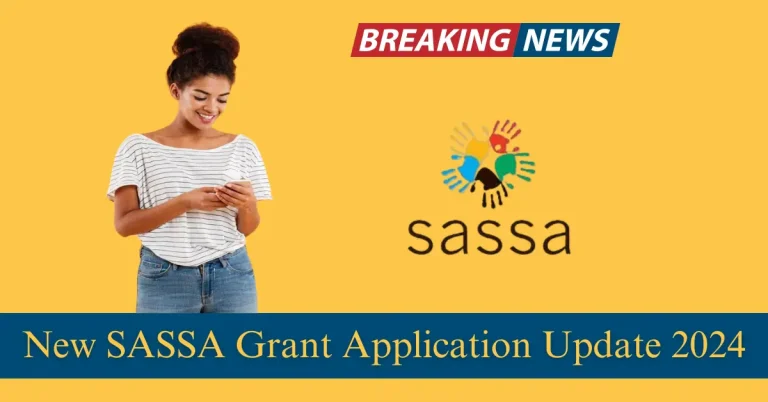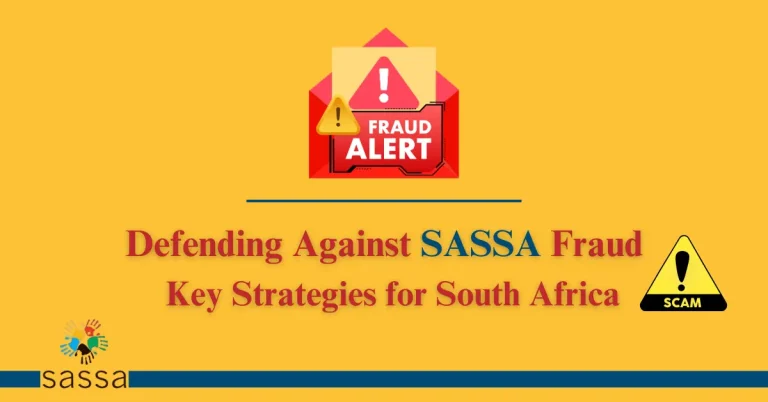Tips for Maximizing Your SRD SASSA Grant 2024
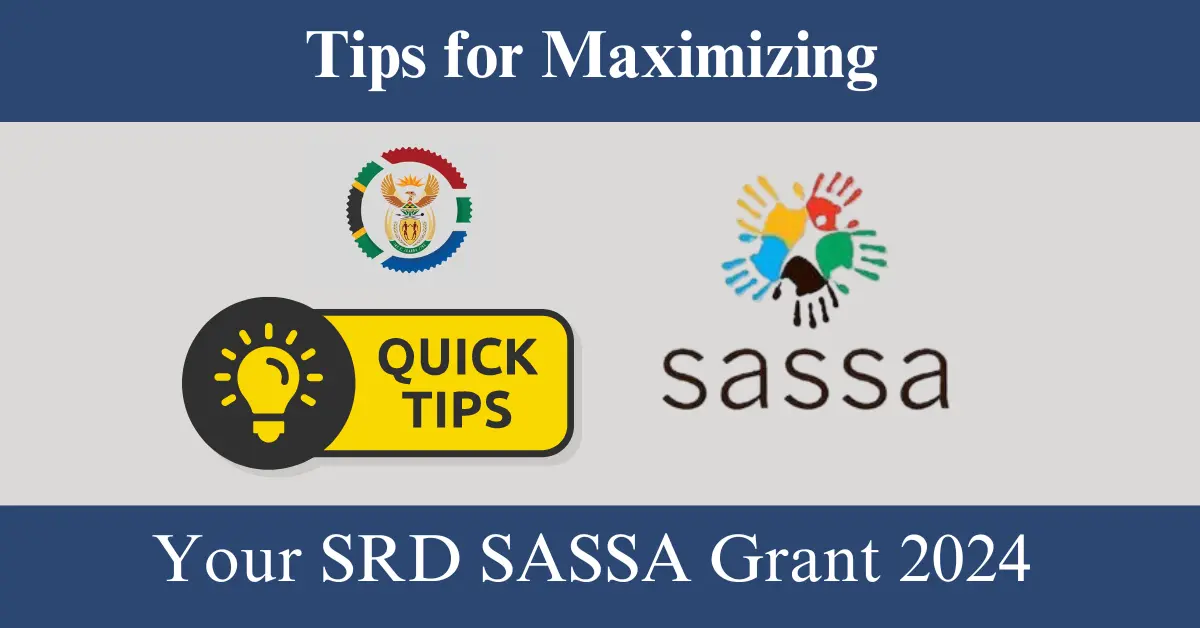
What is the best way to spend the SRD SASSA grant in 2024?
Maximizing Your SRD SASSA Grant is possible or not? The SASSA Social Relief of Distress Grant was designed to provide a safety net for people who are facing financial crisis or extreme poverty. How can we ensure this SRD SASSA Grant is used in a way that will transform it from temporary assistance into an opportunity for empowerment and financial security?
The SASSA grant: Beyond survival
While modest in size, the SRD SASSA grants are a source of lifelines for those who find themselves struggling financially. The SRD SASSA grants can be transformed from survival tools to vehicles for empowerment.
1. Addressing Essential Needs First
The SRD SASSA Grant is primarily intended to cover the costs of basic needs like transportation and food. It is important to prioritize these necessities, not just for survival, but also to maintain a decent life with your family. The basic needs will be met first, laying a strong foundation for future financial planning.
Important Tips for Consideration:
- Set up a monthly food budget: Calculate your monthly grocery requirements and allot a portion of grant money to this. Bulk buying can often be more cost-effective. Plan your meals ahead of time to reduce food waste.
- Save money by shopping smart: Use local markets to purchase seasonal products. Generics are often the same as brand names but for a cheaper price. Keep an eye on sales and discounts, but only buy what you need.
- Planning Transportation: Look at the cost-effective transportation options available. Consider monthly bus tickets if public transportation is an alternative. They may be cheaper than daily tickets.
- Pay Essential Bills First: Budget for any essential bills such as rent or utilities and pay them first. This will prevent debt accumulation and service interruption.
- Monitor & Adjust: Track your monthly spending for these necessities. You can then identify where to cut costs or allocate additional funds. This way, you will be able to align your budget with your priorities.
- Use Community Resources: Make use of community resources, including soup kitchens and food banks.
- Energy Efficient: Lowering energy bills can allow you to use more grant money for essential items. Turning off the lights while not in use or using energy-efficient bulbs can have a big impact.
- Prioritizing Healthcare: Don’t ignore basic healthcare requirements while focusing on transportation and food. Pharmacy generic medications are often cheaper, while local clinics provide services for less or free.
You can also read: Steps to Take When Your SASSA Payment is Delayed
2. Debt Traps: Avoid them at all Costs
It’s important to avoid debt traps, even though the temptation of taking out fast loans is strong. This applies especially to predatory lenders. SRD SASSA grants should help you achieve financial independence, and not trap you in debt cycles.
How to avoid the debt trap:
- Calculate the Total Cost of Debt Before deciding on a loan you should calculate its total cost including fees and interest. The amount of debt you have can increase quickly if the interest rates are high.
- Free Financial Counseling: Many organizations offer financial counseling services to assist you in managing your finances and avoiding debt. Ask for their help with budgeting and planning your finances.
- Compare Needs and Wants What you want versus what you need. Try to limit borrowings to only needs and save for your wants.
- Prepare a Repayment Plan Before Borrowing If you need to borrow money, make sure your repayment plan is clear. Make sure the monthly loan payments are within your budget, without having to sacrifice essentials.
- Avoid Multiple Lending: Borrowing new money to pay back existing loans can create a vicious cycle of debt. Pay off one loan first before you consider another.
- Contact your creditors and negotiate a more manageable repayment schedule: When you are struggling to pay off existing debts, it is worth contacting them to discuss a better payment plan. Most creditors are happy to change your payment schedule to avoid default.
- Inform Yourself About Predatory Loan Practices: Recognize the warning signs, including high-interest rates, unclear conditions, and pressure to act immediately. Knowledge is your best defense.
- Explore Alternative Financing Options Before Taking out a high-interest loan: Prior to taking out a high-interest loan, consider other options. You may find better terms with community savings groups, small grants, and family loans.
- Know Your Rights. Knowing your rights can help you avoid illegal lending practices or harassment by creditors.
- How to Use Your Grant: Allocate the SRD SASSA grant toward essential expenditures and savings, which will reduce the need for borrowing.
- Ask for Community Support: In difficult financial times, local resources such as food banks, social service agencies, and charities in your community can offer temporary assistance without requiring a loan.
- Empower yourself through Financial Education Constantly search for information about financial management, savings, investments, and debt dangers. You’ll make better financial decisions if you have more information.
3. Investment in your future through education
The power of education is to improve your earnings and job prospects. You might consider using a part of your SRD SASS award to attend online classes or workshops in your community that will improve your employability and skills. Learning is not limited to the classroom – it can be done by acquiring new skills.
The basics of
- Find Skills in Demand: Conduct research on the job market and identify high-demand skills either within the field you are interested in or across the economy. These skills can be digital literacy, coding, or project management.
- Find free and low-cost learning opportunities: Many organizations offer online courses for no or little cost. Coursera and edX websites, Khan Academy as well as local education institutions can provide learning opportunities.
- Use Local Libraries and Community Centers. Libraries, community centers, and educational materials are often offered at low or no cost. These can be valuable resources to learn and network.
- Request Financial Assistance or Scholarships: Many educational programs provide financial assistance or scholarships to students who cannot pay their tuition fees. Do not hesitate to apply. This could help you save a lot of money on your future education.
- Participate in Online Communities and Forums: Engaging in online communities that are related to the field you study will provide resources and opportunities for networking. Your educational experience can be enhanced by learning from mentors and peers.
- Continuous Learning is important: Education doesn’t stop with a certificate or course. Take on a curiosity and a continuous learning mindset. Keep up with all the new trends and innovations in your industry.
- Establish Clear Learning Goals Setting specific, measurable attainable, relevant, and time-bound goals (SMART goals) can keep you focused on your educational efforts.
- Achieve a balance between theoretical and practical knowledge: Although theoretical learning is valuable, practical experience can be invaluable. Search for courses with practical projects or learning experiences.
- Improve Soft Skills: Employers value soft skills such as communication, teamwork, and problem-solving. Look for courses that will help you develop soft skills along with technical knowledge.
- Network using Education: Take advantage of your education to build relationships with peers and professionals in the industry. Attending workshops, seminars, and industry events can help you build connections that may lead to a job or mentorship.
- Consider an Apprenticeship or Internship: Find out how you can apply the skills and knowledge that you have gained through your apprenticeship or internship. They can give you valuable experience in the real world and may lead to employment.
- Reflect and Evaluate: Take time after completing the course to consider how you can apply this knowledge in your job or real life. It is important to reflect on your learning and the way it relates to your career goals. This will help you solidify and refine your skills.
- Be Patient and Motivated: Learning a new skill or switching careers requires patience and time. Set small and achievable goals, then celebrate your success along the way.
4. Building an Emergency Fund
Unexpected expenses are a part of life, which can threaten financial stability. You can create financial security by setting aside some of your SRD 350 SASSA grants to cover emergencies. This will help you avoid high-interest loan payments.
Basics of Emergency Funds:
- Aim High, Start Small: Set aside an amount that is manageable, regardless of how little it may be. Save enough money to pay for at least 3 to 6 months’ worth of expenses. Even a small emergency fund, which may seem ambitious at first glance, can come in handy.
- Open an Additional Savings Account: Your emergency fund should be kept in a separate account, to prevent the temptation of using it to pay for other expenses. Search for an account that has no minimum balance and is easy to access.
- Automate Savings: If you can, automate the transfer of funds from your primary savings account to your fund after receiving your grant. This strategy of “paying yourself first” ensures that you contribute consistently to your emergency fund.
- Reduce Non-Essential Spending: Examine your budget to find areas you can reduce, like dining out, entertainment, or subscription services. These savings can be redirected to an emergency fund.
- Increase your savings incrementally: Try to increase your savings as you adapt to the budget and add the emergency fund. Over time, even small amounts can have a significant impact.
- Windfalls: Put any windfalls you receive, like gifts, refunds of taxes, or bonuses into an emergency fund. This can accelerate your saving goal.
- Review Your Fund and Make Adjustments: Review your fund and make adjustments as your finances or expenses change. It is important to ensure that your emergency fund matches current expenses. This will protect you from unforeseen costs.
- Maintain Your Emergency Fund in Liquid Form: You should have easy access to your emergency fund without any penalties or charges. If possible, choose savings accounts and financial instruments that offer both liquidity as well as a modest return.
- Refuse to use it for non-emergencies. Define an emergency and adhere to that definition (e.g. medical costs, car repair urgently needed, loss of job). The fund’s purpose is undermined if it’s used for non-essential items or planned expenses.
- Education is Power: Know your financial management. Learn more about managing your personal finances to make better decisions and save money more effectively.
- Milestones: Reward and Celebrate when You Reach Your Savings Goal. The positive reinforcement you receive can encourage you to continue building up your emergency fund.
- Low-Risk Options for Investment: When your emergency fund has reached a certain amount, you can consider investing in low-risk options to increase your savings. Ensure you have the cash to use when necessary.
5. Additional income
SRD SASSA grants can be used as seed money for new ventures to generate additional income. There are many ways you can turn your grant into an ongoing source of income, whether it is through small-scale agriculture, crafts, or services offered in your local community.
Ideas for Additional Income:
- Assess your Skills and Interests Begin by evaluating the skills, resources, and interests you have. Finding out what you are good at, and what you like to do can help you find business opportunities aligned with your strengths.
- Starting Small Choose a manageable, small project with minimal investment upfront. It reduces the risk of failure and lets you test your idea’s viability without having to commit all your resources.
- Reinvest profits: When you are just starting out, focus your efforts on investing any profit back into your business. It could be as simple as investing in better equipment or materials.
- Use Community Networks: Participate in community networks both online and offline. Word of mouth is a great way to gain customers and receive support from other entrepreneurs.
- Upcycling: Think about ventures involving upcycling and repurposing. It can save money and attract environmentally-conscious consumers.
- Online Service: Consider offering online services if you are skilled in writing, graphic design, or digital marketing. You can find clients all over the world using platforms like Upwork or Fiverr.
- Teach what you know: If your area of expertise is a specific one, like a musical instrument or academic topic, then consider giving lessons online or locally.
- Expand Your Agricultural Intentions: If you own land, small-scale farming is a good option. Consider poultry farming or high-demand crops that require little maintenance.
- Make Handmade Products: Are you crafty? Consider creating and selling handcrafted goods. Etsy and other sites provide an opportunity to sell your crafts globally.
- Preparation of Food and Delivery Services: You can start a catering company in your locality if you are good at cooking.
- Attend Local Markets. Farmers’ Markets, local craft fairs, and other community events are excellent places to network and sell products.
- Learn continuously and adapt: Be open to new skills, and be willing to change your business model in response to what is working and not. Finding and maximizing the best opportunities can require flexibility.
- Find Mentorship: Search for mentoring programs, training workshops, and sessions that are geared toward small business owners. Learn from people who have experience. They can offer valuable insights and advice.
These strategies will help SRD SASSA recipients navigate toward financial empowerment and stability. The grant can be a useful tool in achieving their long-term goals.
Information Updated
The SASSA requires grant recipients to keep their bank and personal details up-to-date. Minister Zulu stated: “A person who was notified by any electronic communication to contact SASSA to update their personal information, including payment details within 90 days after being informed to do so, may have the application suspended.”
SASSA Grants for Old Age Veterans, Disabled Veterans, and Dependents on Care 2024
From April 2024 onwards, the recipients of these grants essential to their well-being will see a substantial increase in R90. This is intended to ease financial burdens and improve quality of life. A further R10 increment is planned for October 2024 to demonstrate the commitment of the government towards its dependents, elderly, and disabled citizens.
Foster Care and Child Support SASSA SRD grants 2024
The adjustments will benefit families who care for children in need. Foster Care Grants will receive an R50 boost, and Child Support grants will be increased by R20. Both will take effect April 20, 2024. The increments are meant to recognize that caregivers play a crucial role in protecting and nurturing children and ensuring they have access to resources essential for their development and well-being.
The Government’s Social Welfare Commitment
This decision reflects the government’s recognition that vulnerable communities face challenges, which are exacerbated due to economic uncertainty and the ongoing effects of the global pandemic. SASSA provides incremental adjustments to offset the impact of rising costs and inflation. SASSA empowers recipients by enabling them to maintain their standard of living and meet basic needs.
Keep Informed:
- Watch out for programs or workshops that provide support or training to grant recipients.
The primary goal of the SASSA is to ensure beneficiaries are able to meet their basic needs. Prioritizing spending should be based on urgent and essential needs.
Consider financial counseling or training if you are unsure of how to manage the funds.
You could also create a side business in order to earn extra money and be less dependent on your grant.
Last thoughts about SRD SASSA Grant in 2024
It is important to remember that, in addition to 2024’s increased grants, the SRD SASSA grant payment methods remain the same. The existing payment methods will be used by beneficiaries without interruption. If beneficiaries have any questions or encounter problems with their payment, please contact SASSA’s customer service or come to their local office for help.
